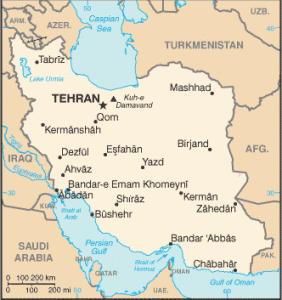In the first official reaction to the forthcoming deal between Iran and the UN’s nuclear watchdog, U.S. officials gave a nod to the diplomatic success, but made clear that it did not mean Washington intended to let up its pressure on Iran.
 Responding to the reported IAEA-Iran deal on Tuesday, White House spokesman Jay Carney called the IAEA agreement with Iran “a step in the right direction,” but said the U.S. would “make judgments about Iran’s behavior based on actions, not just promises or agreements.”
Responding to the reported IAEA-Iran deal on Tuesday, White House spokesman Jay Carney called the IAEA agreement with Iran “a step in the right direction,” but said the U.S. would “make judgments about Iran’s behavior based on actions, not just promises or agreements.”
Carney added that the U.S. would continue to put heavy pressure on Iran and planned to move ahead with sanctions the harsh economic sanctions. “We’re not at the stage of negotiating what Iran would get in return for fulfillment of its obligations, beyond the general principle, which is they would be able to rejoin the community of nations,” he said.
State Department spokeswoman Victoria Nuland said, “Obviously, we fully support IAEA efforts to try to resolve the outstanding issues,” but “the implementation is what we’re going to be looking for…in order to determine whether Iran’s program is exclusively for peaceful purposes.”
Official language about Iran failing “to convince the world community that it is not pursuing the weaponization of nuclear power,” as President Obama said last week, is pure rhetoric designed to stave off criticism from Israel and Republicans that the administration is soft on Iran.
The fact is that the Obama administration, and the whole of the U.S. intelligence community, knows full well that Iran is not developing nuclear weapons, has not demonstrated any intention to do so, and stopped all weaponization activities a decade ago.
Even the top brass of the Obama administration and military leadership, from Defense Secretary Leon Panetta to Director of National Intelligence James Clapper to Chairman of the Joint Chiefs of Staff Gen. Martin Dempsey have publicly declared that Iran is not pursuing nuclear weapons.
So despite the peaceful nature of Iran’s nuclear program and despite Iran’s demonstrated cooperation with the international inspections regime, U.S. officials are hurried to announce pressure and coercion are ongoing. Vice President Joe Biden reiterated this when he explained on Monday in a meeting with Jewish communal leaders that punitive sanctions – for a crime Iran has not committed – won’t be sacrificed to the negotiating process.
The sanctions that have been heaped on Iran are quite serious and far-reaching. They have already damaged the economy severely, facilitating increased unemployment and rampant inflation. The purpose behind them seems to be to harass and intimidate leaders in Tehran as opposed to being punishment for some unlawful act.
When the Obama administration kickstarted the diplomatic process with Iran back in 2009, it ended as soon as Iran acquiesced and agreed to Washington’s demands in a deal brokered by Turkey and Brazil. One hopes Washington’s reminiscent maneuvering is not an indication that these current diplomatic efforts will end similarly.


